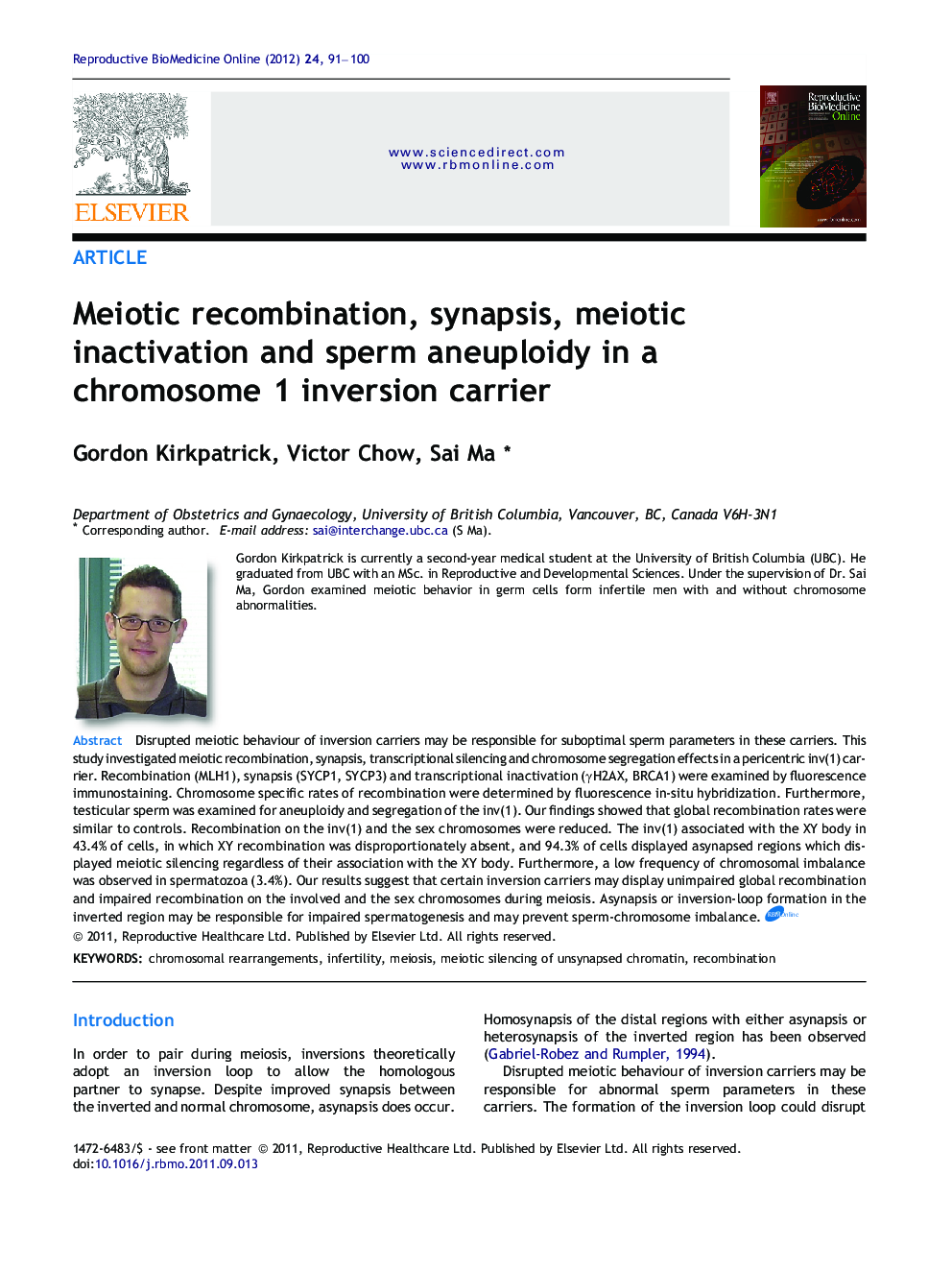| Article ID | Journal | Published Year | Pages | File Type |
|---|---|---|---|---|
| 3970627 | Reproductive BioMedicine Online | 2012 | 10 Pages |
Disrupted meiotic behaviour of inversion carriers may be responsible for suboptimal sperm parameters in these carriers. This study investigated meiotic recombination, synapsis, transcriptional silencing and chromosome segregation effects in a pericentric inv(1) carrier. Recombination (MLH1), synapsis (SYCP1, SYCP3) and transcriptional inactivation (γH2AX, BRCA1) were examined by fluorescence immunostaining. Chromosome specific rates of recombination were determined by fluorescence in-situ hybridization. Furthermore, testicular sperm was examined for aneuploidy and segregation of the inv(1). Our findings showed that global recombination rates were similar to controls. Recombination on the inv(1) and the sex chromosomes were reduced. The inv(1) associated with the XY body in 43.4% of cells, in which XY recombination was disproportionately absent, and 94.3% of cells displayed asynapsed regions which displayed meiotic silencing regardless of their association with the XY body. Furthermore, a low frequency of chromosomal imbalance was observed in spermatozoa (3.4%). Our results suggest that certain inversion carriers may display unimpaired global recombination and impaired recombination on the involved and the sex chromosomes during meiosis. Asynapsis or inversion-loop formation in the inverted region may be responsible for impaired spermatogenesis and may prevent sperm-chromosome imbalance.In infertile men who are carriers of chromosome abnormalities, adequate sperm production can be impaired. Meiosis, a cell division process in which spermatozoa are produced, can be impaired by the interaction of the abnormal chromosome with its homologous pair or with other chromosomes. In meiosis, a process called ‘recombination’ occurs, where homologous chromosomes pair up and exchange genetic material. Recombination is important in ensuring equal distribution of chromosomes during meiosis. When these processes are disrupted, sperm production can be impaired. In this study, we investigated meiosis in an infertile man carrying an inversion on chromosome 1, a particular type of chromosome abnormality. We used fluorescence microscopy techniques to examine recombination, the fidelity of chromosome pairing (synapsis) and chromosome distribution in the meiotic cells obtained from testicular tissue. Spermatozoa was also studied for proper chromosome distribution. Meiotic cells and spermatozoa from five fertile men that did not have any chromosome abnormalities were used as a reference group. Our results showed that recombination involving the affected chromosome, and between the sex-determining chromosomes were reduced compared with the reference. The abnormal chromosome associated with the sex chromosomes in 43.4% of the meiotic cells, in which recombination was noticeably absent between the sex chromosomes. Despite these findings, the frequency of chromosomally abnormal spermatozoa was not greater than the reference. Our findings suggest that certain chromosome inversions may have impaired recombination on the involved and the sex chromosomes. However, this impairment may be a protective factor against the production of chromosomally abnormal spermatozoa.
